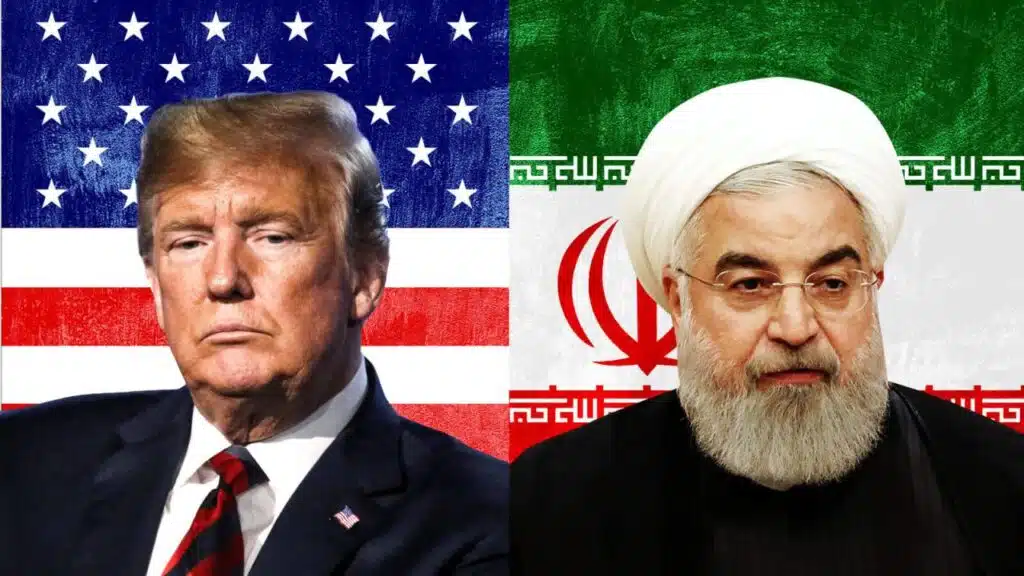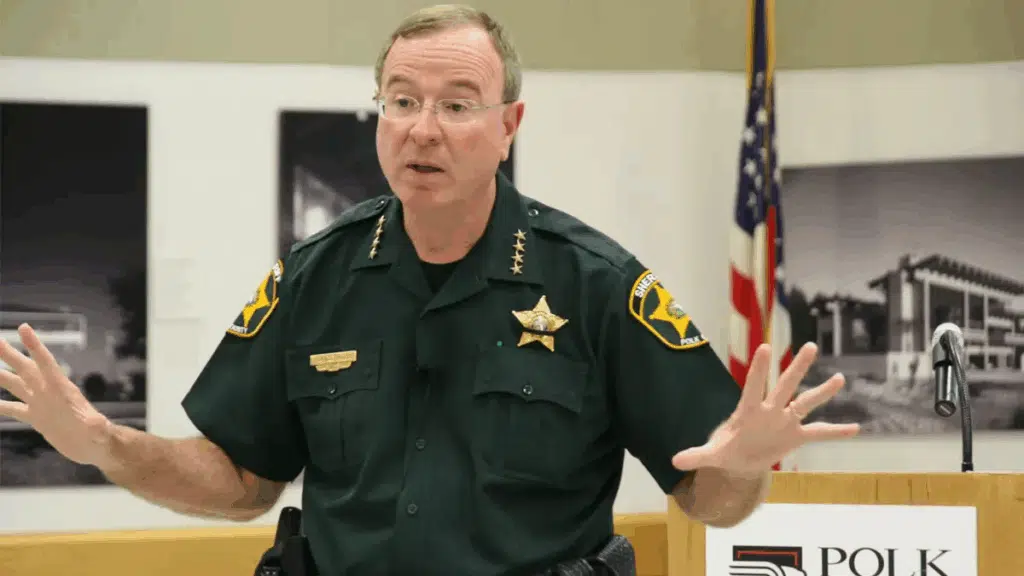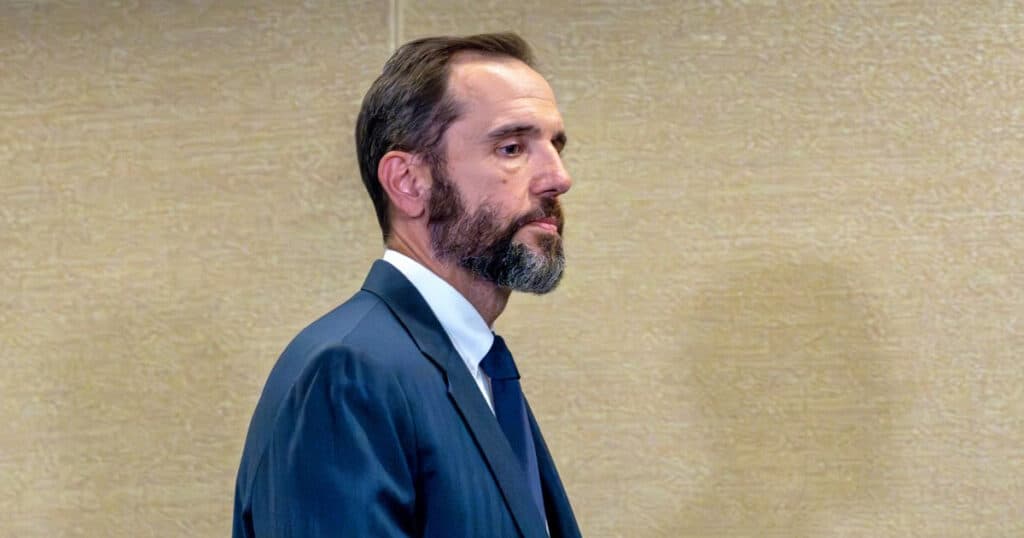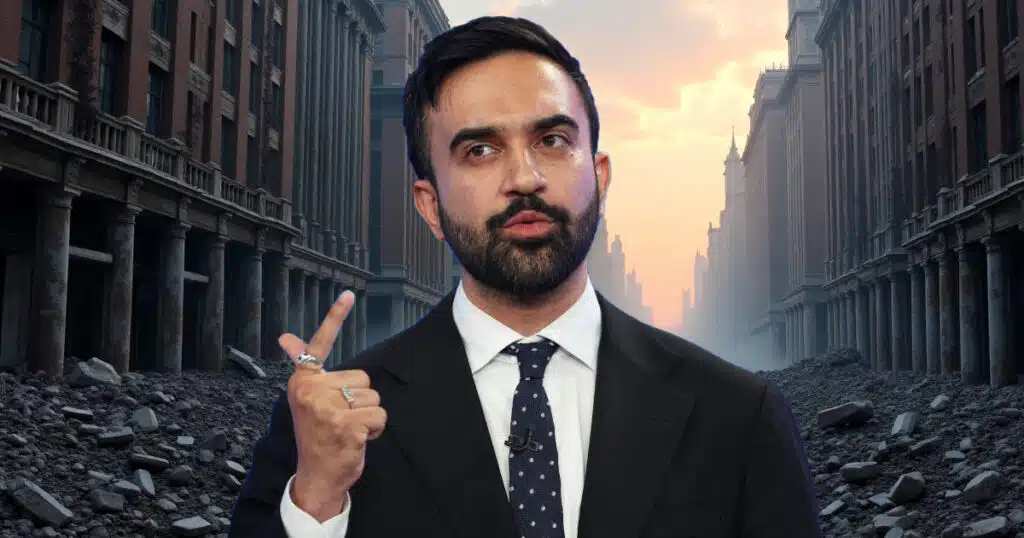
“America First” War With Iran? Uneasy MAGA Confronts Possible Intervention
Vice President J.D. Vance tried to thread the needle.
“Sometimes we’re going to have overlapping interests,” Ohio’s junior Republican senator said of the United States and Israel, “and sometimes we are going to have distinct interests.” But in that interview on The Tim Dillon Show during the 2024 presidential campaign, Donald Trump’s running mate stressed, “our interest very much is in not going to war with Iran.” Such a conflict, Vance concluded, would be “massively expensive” and “a huge distraction.”
Six months into the second Trump presidency, and the lines between an ally’s war and an American conflict have blurred. The United States seems poised to take military action against Iran, a move that could test the political coalition that made Trump president.
President Trump blurred those lines in a series of social media posts Tuesday. “We know exactly where” Ayatollah Ali Khamenei is hiding, he wrote, before clarifying that the U.S. had no plans to kill the supreme leader of Iran, “at least for now.” Trump also boasted that “we now have complete and total control of the skies over Iran,” seeming to take some ownership of the Israeli strikes that have leveled Tehran. He called for the “unconditional surrender” of the nation that the U.S. is not yet at war with.
Rather than retreat from the Middle East, as some critics feared, Trump has gotten more involved. The standing of the isolationists, or anti-interventionists, within his inner circle has been diminished, at least for now.
Trump seemed to disregard analysis from Tulsi Gabbard, his director of National Intelligence; “I don’t care what she said,” he told reporters aboard Air Force One when asked about her March assessment that Iran had not restarted its nuclear program.
The exchange on Air Force One has not affected the standing of Gabbard inside the White House. Noting her military service and support of the president, Vance told RCP that the DNI remains “a critical part of the coalition he built in 2024.” The vice president continued, “She’s an essential member of our national security team, and we’re grateful for her tireless work to keep America safe from foreign threats.”
Trump also feuded with former Fox News host Tucker Carlson; “Let him go get a television network and say it so that people listen,” he said at the G7 Summit when asked about Carlson’s impassioned anti-war warnings on his social media channel.
Trump put on an island political allies, like Georgia Rep. Marjorie Taylor Greene, who insist that waging war was never part of the MAGA agenda; “I’m the one that developed ‘America First,’” he told the Atlantic.
Even as the president continues to weigh his options, a bunker-busting bomb to destroy Iranian nuclear capacity or diplomacy to convince Iran to do it unilaterally, the administration seems to be shifting toward a more aggressive foreign policy.
“The president has lots of connections to Israel and the Jewish community. Iran with its 46 years of terrorism is very hard to empathize with,” said Arkansas Rep. Don Bacon, a retired Air Force general and one of the more hawkish Republicans in the House. Bacon told RealClearPolitics he has picked up on the recent evolution, adding, “I hope it carries over to Ukraine.”
This seems unlikely. Trump doesn’t just fancy himself a peacemaker. It was central to his political rise. A celebrity a decade ago, he ran against the prevailing foreign policy wisdom of the Republican Party, trashing in particular the decision to invade Iraq as “a big mistake.” Steve Bannon, one of the architects of that campaign, described “stopping the forever wars” as one of the three planks of Trumpism on par with ending illegal immigration and reshoring manufacturing.
But despite an aversion to using military force abroad, Trump has consistently warned that Iran cannot obtain nuclear weapons. Lest anyone believe that the president was breaking with his own orthodoxy, White House communications aides pushed out more than two dozen clips of Trump during the campaign repeating that warning. And as Trump told The Atlantic magazine over the weekend, he is the arbiter of what MAGA means.
“Well, considering that I’m the one that developed ‘America First,’ and considering that the term wasn’t used until I came along,” he told the Atlantic, “I think I’m the one that decides that.”
This does not comfort his populist allies.
“This is a perfect way to scuttle the U.S.S. America on the shoals of Iran,” Carlson warned during a Monday interview on “the War Room” with Steve Bannon, “but it’s also going to end, I believe, Trump’s presidency.” Appearing on the Tucker Carlson podcast the same day, Bannon warned that striking Iran amounts to little more than a redux of the War on Terror. “This is exactly the same pitch as the Iraq War,” he said, referencing again the arguments about nuclear weapons. A shadowy elite of entrenched interest, Bannon continued, was “running the Iraq War playbook over again” and risking the same disastrous consequences.
Looking in from the outside, both men fear that skeptics of intervention have been sidelined. “Why was Tulsi Gabbard not invited to the Camp David meeting?” Bannon asked, referencing a huddle Trump held at that presidential retreat.“You know why,” Carlson replied. The speculative answer: Gabbard has long opposed a strike on Iran.
Testifying before the Senate Intelligence Committee in March, the director of National Intelligence told lawmakers that while Iran had an “unprecedented” amount of enriched uranium and had broken its “decades-long taboo” of openly discussing its ambitions for the bomb, the nation had not restarted its nuclear weapons program.
When asked early Tuesday morning about a portion of that assessment, that Iran did not currently appear to be building the bomb, Trump snapped back, “I don’t care what she said. I think they were very close to having one.”
For her part, the DNI told reporters on Capitol Hill that she and the president remained “on the same page.” And later, the White House echoed that message and backed up Gabbard.
“President Trump’s Peace through Strength foreign policy is a tried-and-true approach that keeps America safe and deters global threats. Efforts by the legacy media to sow internal division are a distraction that will not work,” Steven Cheung, the White House communication director, told RCP. “President Trump has full confidence in his entire exceptional national security team.”
A senior intelligence official stressed that the president and his director of National Intelligence remain in lockstep and their analysis of the situation in Iran is “congruent.”
“Just because Iran is not building a nuclear weapon right now, doesn’t mean they aren’t ‘very close’ as President Trump said on Air Force One,” the intelligence official told RCP. “All the points DNI Gabbard made during the [Annual Threat Assessment] hearing outside of the singular statement that ‘Iran is not building’ a nuclear weapon, point to the country being very close to building one.”
The official argued that the press were simply trying to sow division and pointed to the warning Gabbard delivered on Capitol Hill when she said in March, “the supreme leader of Iran now faces a stark choice thanks to President Trump. The supreme leader can fully dismantle his nuclear program, or he can have it dismantled for him.” Any differences were simply “apples to oranges,” the officials added, when placed in the proper context, “which many in the media are refusing to acknowledge.”
Gabbard wasn’t snubbed from the Camp David meeting either, the official said. Gabbard, a lieutenant colonel in the U.S. Army Reserve, was training in Oklahoma.
Other remaining advocates for non-intervention inside the administration, sources tell RCP, include Vance and Steve Witkoff, the close personal friend of the president who now serves as U.S. Special Envoy to the Middle East.
Sensing tension in the MAGA coalition, the vice president seemed to try to bring hawks and doves into concert. “People are right to be worried about foreign entanglement after the last 25 years of idiotic foreign policy,” Vance wrote in a lengthy social media post. And after repeating Trump’s exhortation that Iran cannot be allowed to have a nuclear weapon, he praised his boss for showing “remarkable restraint in keeping our military’s focus on protecting our troops and protecting our citizens.”
Vance held out the possibility that Trump could go the military route against Iran, that the president may take “further action.” A Marine Corps veteran and an avowed critic of neoconservatives, the final word from the vice president amounted to an exhortation to the MAGA faithful to believe in Trump and his instincts.
“I believe the president has earned some trust on this issue,” Vance concluded.
This article was originally published by RealClearPolitics and made available via RealClearWire.



